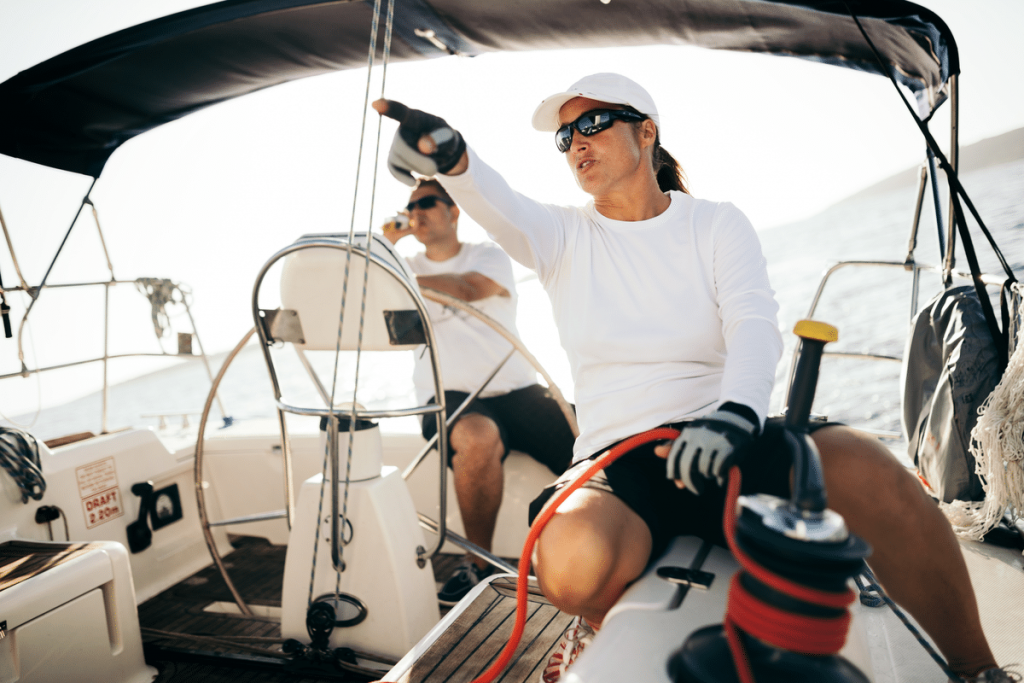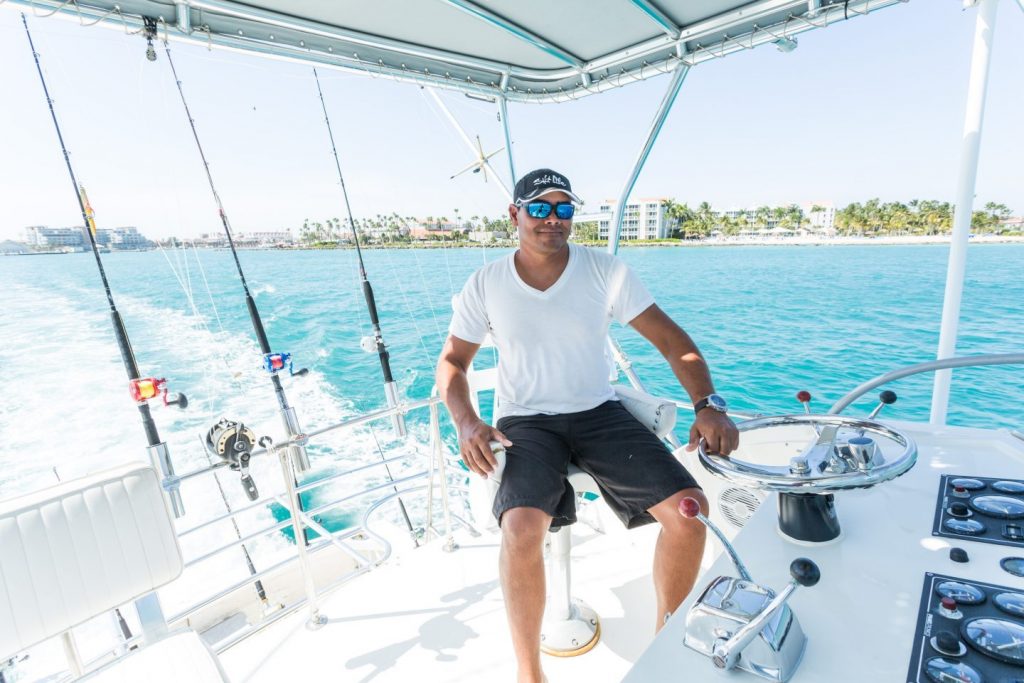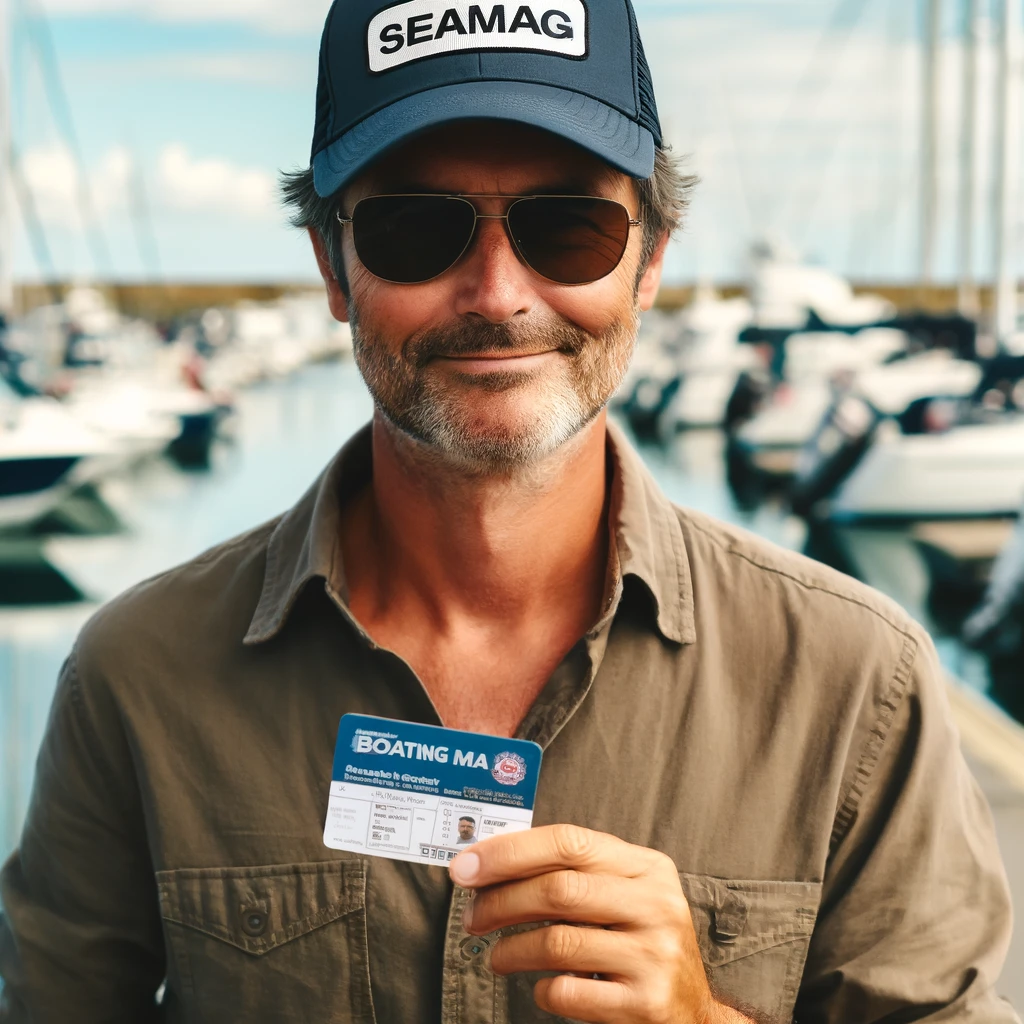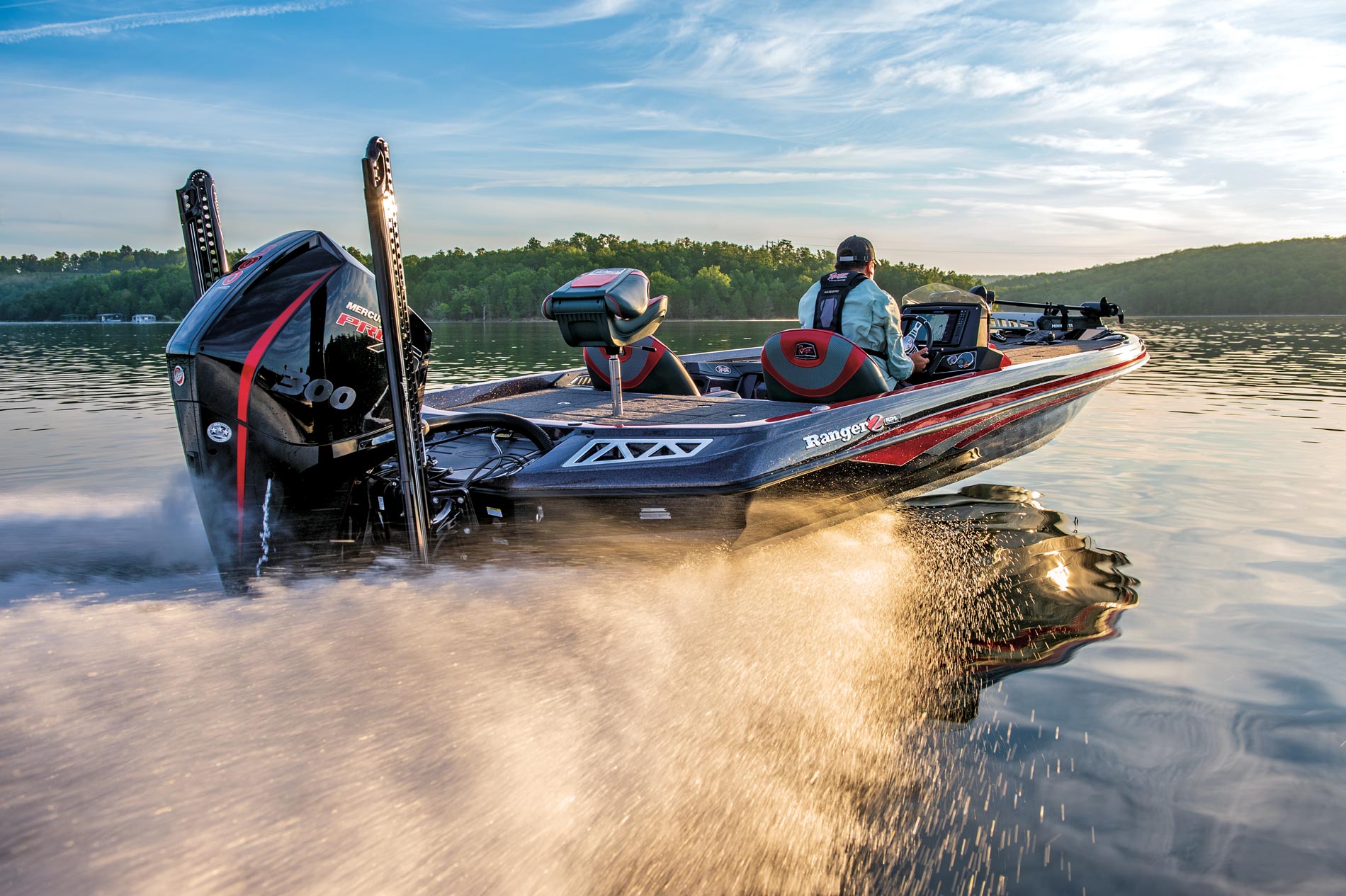Boat Captain Essentials: Mastering Skills for Successful Voyages
A boat captain, also known as a shipmaster or sea captain, plays a vital role in the maritime industry. They have the ultimate responsibility for the safe and efficient operation of a merchant vessel.

To become a boat captain, individuals need to possess a strong working knowledge of vessel management, navigational skills, and regulatory compliance. The demand for skilled professionals in the maritime sector continues to grow, and the career opportunities for aspiring boat captains are expanding.
The journey to becoming a boat captain involves gaining several years of professional experience. A minimum of three to four years is usually required for entry-level captain positions.

This experience should be directly related to the operations and management of a ship. Candidates need to demonstrate proficiency in areas such as safety, security, cargo operations, crew management, and environmental compliance. Boat captains also need to obtain the necessary licensing and certifications to operate within their jurisdiction.
Boat captains can expect to find employment opportunities across a range of sectors, including commercial shipping, private yacht charters, and government organizations. Salaries can vary depending on factors such as experience and location, with some captains in the United States earning between $40,000 to $60,000 a year.

The role of a boat captain is both exciting and rewarding, offering individuals the opportunity to travel the world while maintaining a high level of responsibility for their vessel and crew.
Key Takeaways
- Boat captains are responsible for the safe and efficient operation of merchant vessels
- Aspiring captains require experience, licensing, and professional development to enter the field
- Employment opportunities are available in various sectors, with compensation dependent on experience and location.
Becoming a Boat Captain
Becoming a boat captain in the maritime industry requires a combination of education, qualifications, and licensing. This section will cover the educational requirements and certifications needed to achieve this goal.
Educational Requirements
While a high school diploma is typically the minimum educational requirement for entry-level positions in the maritime industry, earning a bachelor's degree in marine transportation or a related field can improve your job prospects and provide a solid foundation of knowledge.
Many aspiring captains choose to enroll in a maritime training program1. These programs offer courses on seamanship, navigation, marine safety, and vessel operations.
Certification and Licensing
In order to work as a boat captain, individuals must obtain a Merchant Mariner Credential (MMC) and a United States Coast Guard (USCG)-approved captain's license2. The process includes meeting age restrictions, passing a background check, taking a drug test, and completing CPR training.
The MMC is issued by the USCG and serves as proof of an individual's qualifications for various positions in the maritime industry, including serving as a boat captain. To obtain an MMC, candidates must:
- Be at least 18 years old
- Pass a background check
- Pass a drug test
- Hold a valid CPR certification3
For most boat captain roles, the USCG requires a minimum of 360 days of sea time1. However, more professional experience is often needed for job opportunities, with at least three to four years of directly related experience in the operations and management of a ship being preferred1.
Captains looking to specialize in specific niches, such as running a fishing charter or operating a ferry, may find additional training programs and certifications advantageous. These can lead to higher pay and broader opportunities4.
Career Overview
Job Description
A boat captain, also known as a sea captain or mariner, is a professional who commands and oversees the operations of a ship or vessel. They can be found in various types of ships, including merchant vessels, cruise ships, and charter boats. The boat captain holds the highest position of authority on board and is entrusted with the safety of the vessel, crew, passengers, and cargo (source).
Boat captains are required to have extensive knowledge of maritime laws and regulations, navigation skills, safety procedures, and technical abilities such as vessel maintenance and repairs. They must ensure the vessel's seaworthiness and manage cargo operations where necessary (source).
Key Responsibilities
Below are the main responsibilities of a boat captain:
Vessel Operations: Boat captains operate and/or sail vessels either through a manual or computer-guided operation, ensuring safe and timely transport from one location to another (source).
Safety and Seaworthiness: It is crucial for boat captains to inspect the vessel both inside and out, ensuring it is entirely safe for crew and passengers aboard, as well as fit for the journey. This includes regular maintenance checks, adherence to safety protocols, and prompt repairs if needed (source).
Crew Management: Captains are responsible for managing the crew on board, from assigning tasks and supervising their work to ensuring they are well-trained and following safety procedures. Teamwork and communication are vital traits for a successful boat captain, as the crew relies on their guidance and leadership (source).
Navigational Skills: Boat captains must possess strong navigational skills, utilizing equipment and technology to plot courses, avoid obstacles, and monitor weather conditions. Accurate navigation is essential to ensure a safe and prompt arrival at the intended destination (source).
Career Paths
There are various career paths a boat captain may follow, some of which include:
- Charter boat captain, catering to fishing trips, private charters, or sightseeing excursions
- Merchant vessel captain, commanding cargo ships transporting goods internationally
- Cruise ship captain, ensuring the smooth and enjoyable experience of passengers on board a cruise vessel
Becoming a boat captain often requires years of experience on the water, as well as obtaining the necessary licenses and certifications (source). Many boat captains may start as a mate or crew member, gradually gaining the required skills and knowledge to advance their mariner career.
Skills and Experience
Navigational Expertise
Boat captains need a solid background in navigational expertise to safely maneuver their vessels through various waterways and changing weather conditions.
Experience in navigating using charts, compasses, GPS, and radar systems empowers boat captains to excel in their role.
They also must be well-versed in understanding tides, currents, and variations in water depths.
This expertise enables them to ensure the seaworthiness of their vessel and maintain safety for the crew and passengers onboard.
- Navigational tools
- Charts
- Compasses
- GPS
- Radar systems
- Understanding
- Tides
- Currents
- Water depths
Technical Proficiency
In addition to navigational skills, boat captains must possess technical proficiency in various aspects of vessel operation.
This includes engine maintenance, which involves regular checks and servicing of the boat's engine to ensure optimal performance, prevent breakdowns, and extend the engine's lifespan.
A boat captain must also be knowledgeable about vessel maintenance to oversee the mechanical and structural systems' upkeep.
Technical skills a boat captain should have:
- Engine maintenance
- Vessel maintenance
- Radio procedures
- Docking and line handling
Furthermore, boat captains should hold various certifications, such as a master or mate license, proving their knowledge and compliance with maritime regulations.
A master mariner license is often required for captains steering larger ships, while a deck officer position can typically begin with a mate license.
This ensures that they understand and adhere to safety protocols, legal standards, and environmental regulations while on the job.
Regulatory Compliance
Legal Requirements
Boat captains must adhere to a variety of legal requirements to operate vessels, ensuring the safety of passengers and crew. A fundamental requirement for maritime professionals is obtaining a captain's license issued by the United States Coast Guard (USCG).
A Merchant Mariner Credential (MMC) is also essential, as it serves as an endorsement to the captain's license.
Completing specific coursework and exams are necessary to maintain legal compliance in the maritime industry. To receive a captain's license, an individual must:
- Enroll in a USCG-approved course
- Complete the required training
- Pass the USCG exam
Safety Standards
Safety is paramount in the maritime industry, and boat captains must maintain high safety standards to comply with regulations. These standards are enforced by the United States Coast Guard and involve regular inspections of vessels and crew.
The following are key components of safety standards for boat captains:
- Vessel Inspections: Ensuring that the boat is in proper working order, compliant with safety regulations, and equipped with necessary safety gear.
- Crew Training: Captains must train their crews in essential safety procedures and protocols, such as fire drills, abandon ship drills, and man overboard situations.
- Navigational Safety: Captains should be well-versed in proper navigational techniques, including reading charts, understanding tides and currents, and using advanced navigation systems.
Professional Development
Advancing Your Career
A career in the maritime industry is driven by an individual's passion for the sea and requires continuous professional development.
One key step in advancing a maritime career is obtaining a Master License.
Upgrading from an OUPV/Six-Pack Captain's License to a 25/50 or 100-Ton Master Captain's License can open up new career paths and opportunities within the industry.
Furthermore, accumulating the required sea time and obtaining specialized endorsements, such as sailing or towing, will help in expanding the scope of a captain's expertise.
For instance, working on charter boats, super yachts, or offshore projects can expose captains to diverse vessels and operations, such as the experiences of Captain Madison Olson.
Building a Network
In the maritime industry, building a professional network can play a crucial role in professional development and career growth.
Joining a trade organization like the Professional Captains Association or participating in Confident Captain training program can provide valuable networking opportunities with fellow captains and industry professionals.
Additionally, these organizations often provide resources in the areas of maritime law, legal, financial, education, and professional development.
Captain Dresser, the founder of both Confident Captain training program and the Professional Captains Association, emphasizes the importance of these platforms for creating a supportive community and offering opportunities for skill advancement.
Operational Management
Overseeing Crew
A vital aspect of a boat captain's role is to oversee the crew. This involves assigning tasks, monitoring performance, and ensuring the safety and well-being of all on board.
The captain is responsible for delegating tasks to the crew members, such as navigation, maintenance, and watchkeeping1.
It is vital to maintain clear communication between the captain and the crew, as this impacts the overall performance of the crew.
A well-coordinated crew is essential for ensuring the safety of the vessel and avoiding incidents like collisions, which may result from miscommunication2.
Maintaining Vessel Operations
Another key responsibility of a boat captain is to maintain the vessel's operations. This involves ensuring the seaworthiness of the ship.
Inspecting and maintaining equipment that plays a crucial role in the vessel's operations is also part of the captain's duties3.
- Navigation: The captain is responsible for charting the course, taking into account weather conditions, currents, and other factors4. Effective and accurate navigation is essential to avoid hazards and to arrive at the destination on schedule.
- Docking: The captain oversees the docking procedure, ensuring safe and secure mooring upon arrival at ports5. This involves coordinating with the crew and using the right equipment to successfully dock the boat.
- Collision avoidance: The captain must also learn collision avoidance techniques to navigate safely through congested waters and avoid potential collisions with other vessels6.
- Maintenance: Routine maintenance checks are needed to keep the vessel in good working order and ensure timely repairs are carried out7.
Licensing Pathways
United States Coast Guard Criteria
The Captain's License is a necessary credential for anyone looking to operate a commercial vessel or boats used for recreational purposes. Captain's licenses are issued by the United States Coast Guard and are classified into different types, such as OUPV (Operator of Uninspected Passenger Vessels) and Master licenses.
To earn an OUPV or the commonly known Six-Pack License, an individual must:
- Be 18 years or older
- Possess legal status to work in the U.S.
- Pass a drug test and physical
- Acquire a Transportation Worker Identification at a minimum level
For the Master licenses, eligibility requirements include being a U.S. citizen and being at least 19 years old. In addition to passing a drug test and settling USCG fees, sea service requirements also vary depending on the tonnage of the license being pursued.
Tonnage and Endorsements
There are different levels of Master licenses based on the vessel's tonnage:
- 25/50/100 Ton License: This applies to vessels up to the specified weight.
- Inland License: Requires 360 days of sea service
- Near Coastal License: Requires 720 days of sea service
Endorsements are additional credentials that can be earned to expand the scope of a Captain's license. For example, the Assistance Towing Endorsement allows a licensed captain to tow vessels for profit, while the Naval Reserve endorsement is needed to join the US Coast Guard Reserve.
Proper education, training, and experience are essential in obtaining a suitable Captain's license and its endorsements. The Merchant Mariner Credential (MMC) program provides courses and exams needed for the licensing process.
Throughout a captain's career, continuing education is crucial to stay up-to-date with industry standards and regulatory requirements, ensuring a safe and successful journey in the maritime world.
Employment Opportunities
Charter Services
Boat captains often find employment opportunities in the charter services industry, where they are responsible for operating various types of vessels such as fishing charters, sunset cruises, and private yacht charters. These captains usually hold a United States Coast Guard (USCG) license, allowing them to legally operate various types of vessels. Some of the key responsibilities include:
- Safely navigating the vessel
- Ensuring guest satisfaction
- Coordinating with the crew
- Adherence to maritime regulations
For instance, a boat captain job with a charter service that provides sunset cruises may be responsible for operating the vessel, interacting with clients, and ensuring that the tour is enjoyable for all aboard.
Commercial Shipping
Another area where boat captains, or shipmasters, can find employment is in the commercial shipping industry. In this sector, they may oversee the transportation of various goods and resources aboard merchant ships. Some key responsibilities for captains in this industry can include:
- Supervising the loading and unloading of cargo
- Management of vessel operations
- Ensuring the safety and well-being of the crew
- Navigating the ship safely and efficiently
Boolean list of jobs often involve working in the commercial shipping sector, with roles that range from managing a small crew to being in charge of a larger merchant vessel.
Compensation and Benefits
Salary Expectations
Boat captains can expect a wide range of salaries depending on factors such as the size of the vessel, their level of experience, and the employer they work for.
For instance, some small fishing boat captains may earn an average annual salary of around $35,000, while captains who manage larger cargo ships or luxury yachts can earn more than $100,000 per year.
In general, experience and the type of vessel operated contribute to the earning potential of a boat captain.
Non-monetary Perks
Besides their salary, boat captains also enjoy several benefits that come with the profession, such as:
- Career satisfaction: Working on the open seas and being responsible for the safe operation of a vessel can bring a great sense of accomplishment to many boat captains.
- Travel opportunities: Depending on the type of vessel, boat captains may have the opportunity to travel and visit various ports around the world. This allows them to explore new cultures and locations.
- Flexible schedule: Some boat captains may work on a rotational basis, allowing for a healthy work-life balance and time off to spend with family and friends.
- Autonomy: As the person in command, boat captains have a significant degree of authority and independence. This can be appealing to those who value decision-making and leadership.
Frequently Asked Questions
How does one become a certified boat captain?
To become a certified boat captain, one must gain maritime experience. This often involves starting as part of the deck crew and working their way up the ranks. Additionally, obtaining the appropriate maritime certification(s) through recognized organizations or training institutions is essential [1].
What are the different categories of boat captain licensure?
Boat captain licensure can vary depending on the size and type of vessel, as well as the specific job duties and responsibilities. Some common categories of boat captain licensure include Master, Mate, and Operator licenses. Each license has varying tonnage limits and endorsements depending on the type of vessel and its operational area [2].

What qualifications are required for a private boat captain license?
For a private boat captain license, requirements may include having a specific number of sea service hours, completing a maritime education program, and passing an examination. The specific qualifications can vary depending on the type of vessel and its operational area [3].
What is the typical salary range for a boat captain?
The salary range for a boat captain can vary widely depending on factors such as the size and type of vessel, the captain's experience, and the region in which they work. Salaries generally start in the range of $40,000 to $60,000 per year for entry-level positions and can reach well over $100,000 per year for experienced captains on larger vessels [4].
What responsibilities does a boat captain have on a vessel?
As the captain, they are responsible for the safety of the crew, passengers, boat, and those they may come into contact with. Responsibilities can include vessel navigation, crew management, and ensuring the vessel's compliance with regulations and safety protocols. The captain is also required to maintain effective chains of command and oversee the overall operation of the vessel [5].
How can one find boat captain job opportunities?
Boat captain job opportunities can be found through various channels. These include online job boards, industry-specific websites, maritime recruitment agencies, and professional networking.
Indeed is one example of a platform where boat captains can search for job openings and apply for positions in different locations and types of vessels [6].
Charlie is Editor-in-Chief of Sea Magazine







